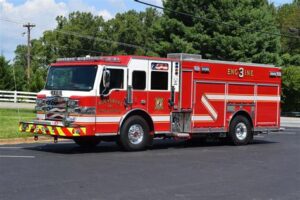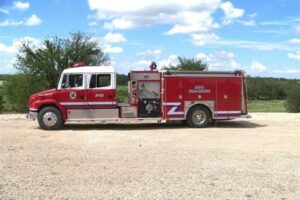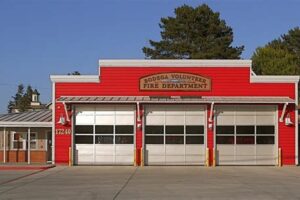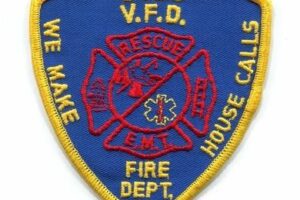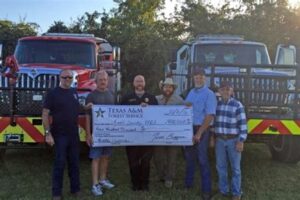Table of Contents
Learn about the rules and regulations that govern volunteer fire departments. Discover essential guidelines for maintaining safety, managing emergencies, and promoting teamwork within the department. Understand the crucial role these regulations play in ensuring efficient operations and protecting communities.
Attention all community members! Have you ever wondered what it takes to be part of a Volunteer Fire Department? Well, look no further because we have all the rules and regulations you need to know. Whether you’re a seasoned firefighter or considering joining our dedicated team, understanding these guidelines is crucial. From safety protocols to teamwork expectations, our Volunteer Fire Department operates with efficiency and professionalism. So, let’s dive in and explore the essential rules that make our department a well-oiled machine!
Introduction
In every community, there are unsung heroes who have dedicated their lives to protecting others. Volunteer firefighters selflessly put themselves in harm’s way to save lives and property during emergencies. To ensure the smooth functioning and safety of these brave men and women, volunteer fire departments have established a set of rules and regulations. These guidelines help maintain order, efficiency, and professionalism within the department. In this article, we will explore some key rules and regulations that govern volunteer fire departments.
Membership Requirements
Becoming a member of a volunteer fire department involves meeting certain criteria. These requirements typically include being of legal age, having a clean criminal record, possessing a valid driver’s license, and residing within a specific geographical area. Additionally, individuals may undergo physical fitness tests and attend mandatory training sessions to ensure they are prepared for the demands of the job.
Code of Conduct
Volunteer firefighters are expected to uphold a high standard of behavior both on and off-duty. They must adhere to a code of conduct that emphasizes honesty, integrity, respect, and professionalism. This code ensures that members represent the fire department and the community in a positive light at all times.
Operational Procedures
The operational procedures of a volunteer fire department outline how emergency calls are received and responded to. These procedures include protocols for dispatching units, communication systems, incident command structure, and coordinating with other emergency services. Following these procedures is crucial to ensuring an efficient and coordinated response to emergencies.
Training and Certification
Volunteer firefighters must undergo regular training to enhance their skills and knowledge. Training sessions cover various aspects of firefighting, rescue techniques, first aid, hazardous materials handling, and more. Additionally, firefighters are encouraged to pursue certifications such as Firefighter I and II, Emergency Medical Technician (EMT), and specialized rescue training.
Equipment and Apparatus
A volunteer fire department relies on well-maintained equipment and apparatus to carry out their duties effectively. Rules and regulations govern the proper usage, maintenance, and storage of firefighting gear, vehicles, and tools. Regular inspections and maintenance schedules ensure that all equipment is ready for immediate use in emergencies.
Health and Safety
Ensuring the health and safety of volunteer firefighters is of utmost importance. Regulations covering personal protective equipment (PPE), safe operating procedures, and wellness programs help minimize the risks associated with firefighting. Regular medical examinations and physical fitness assessments also ensure that firefighters are fit for duty.
Response Protocols
When responding to emergencies, volunteer firefighters follow specific protocols to maintain order and safety. These protocols include establishing incident command, assessing the situation, implementing firefighting tactics, and coordinating with other emergency services. Adhering to these protocols ensures a structured and effective response to any incident.
Disciplinary Actions
To maintain discipline and accountability, volunteer fire departments have a set of disciplinary actions in place. These actions may range from verbal warnings to suspension or expulsion from the department, depending on the severity of the offense. Disciplinary measures help uphold the standards and values of the department.
Community Engagement
A volunteer fire department plays a vital role in community engagement and education. Regulations may outline requirements for participating in community events, conducting fire prevention programs, and offering public education on safety measures. By actively engaging with the community, volunteer firefighters build trust and create a safer environment for everyone.
Conclusion
Volunteer fire departments are essential pillars of any community, and their rules and regulations ensure the effective functioning and safety of their operations. By adhering to membership requirements, codes of conduct, operational procedures, and training protocols, these selfless individuals protect lives and property during emergencies. The dedication and commitment of volunteer firefighters deserve our utmost respect and support.
Membership Eligibility
1.1 Maintaining Active Residency: To become a volunteer firefighter, individuals must demonstrate active residency within a designated area covered by the department. This ensures that volunteers are familiar with the local community and can respond quickly to emergencies.
1.2 Age Requirements: Prospective members must meet a minimum age requirement, typically 18 years old, to ensure they possess the necessary maturity and physical abilities to carry out firefighting duties. This requirement guarantees that volunteers can handle the physical demands and make sound decisions in high-pressure situations.
1.3 Background Checks: All applicants will undergo comprehensive background checks to ensure their suitability for the role. These checks include criminal records, driving history, and any previous involvement in emergency response services. By conducting thorough background checks, the department can maintain a safe and trustworthy team of volunteers.
Training and Certification
2.1 Basic Training: All volunteers are required to complete a standardized training program that includes coursework in firefighting techniques, equipment operation, and emergency medical procedures. This training equips volunteers with the necessary skills and knowledge to effectively respond to various emergency situations.
2.2 Continued Education: Regular training sessions and workshops will be provided to ensure volunteers stay up-to-date with the latest firefighting techniques, safety protocols, and equipment operations. By continuously updating their skills, volunteers can provide the highest level of service to the community.
2.3 Certification Requirements: Volunteers must attain appropriate certifications such as CPR, first aid, and hazardous materials handling. These certifications guarantee their ability to respond effectively to a wide range of emergency situations, providing the necessary care and assistance to those in need.
Code of Conduct
3.1 Professional Behavior: Volunteers must conduct themselves in a professional manner, both on and off duty. They are expected to represent the department in a positive light at all times, demonstrating respect, integrity, and a commitment to the highest ethical standards.
3.2 Respectful Communication: Open and respectful communication among volunteers, department staff, and the public is paramount. Any form of harassment, discrimination, or misconduct will not be tolerated, fostering a supportive and inclusive environment within the department.
3.3 Confidentiality: All members must adhere to strict confidentiality when it comes to sensitive information gained during emergency response operations. Respecting the privacy of victims and victims’ families is crucial in maintaining trust and upholding the department’s reputation.
Response Protocol
4.1 Prompt Response: Volunteers must be readily available and respond promptly to emergency calls. They understand the critical importance of timely intervention and strive to minimize damage, save lives, and protect property.
4.2 Team Collaboration: During emergency incidents, volunteers are expected to work seamlessly with their team members. They follow the chain of command, communicate effectively, and coordinate their efforts to ensure an efficient and effective response.
4.3 Personal Protective Equipment (PPE): Strict adherence to PPE guidelines is mandatory to protect oneself and others from potential hazards. Failure to wear appropriate gear will result in disciplinary action, as safety is of utmost importance in every operation.
Attendance and Availability
5.1 Regular Attendance: Volunteers must maintain a minimum attendance level at training sessions, department meetings, and planned drills. This requirement ensures the development and preservation of necessary skills and knowledge.
5.2 Schedule Flexibility: Volunteers should maintain open availability to respond to emergency calls, understanding that emergencies may occur at any time. While work, family, and personal responsibilities are considered, a reasonable expectation of availability is necessary to fulfill their commitment to the department and the community.
5.3 Communication of Absences: In case of any scheduling conflicts or inability to attend a training session, volunteers are required to inform their designated supervisor or the department ahead of time. This allows for proper planning and ensures that adequate resources are available during emergencies.
Equipment and Facilities
6.1 Proper Usage: All volunteers are responsible for the appropriate use, maintenance, and care of department equipment and facilities. This includes conducting regular inspections, documenting any issues, and reporting them to the designated supervisor.
6.2 Reporting Damage or Deficiencies: Any damage or deficiencies noticed in equipment or facilities should be promptly reported to the designated supervisor. Timely repairs or replacements ensure the availability of reliable equipment and a safe working environment.
6.3 Compliance with Safety Standards: Volunteers must adhere to safety guidelines while operating equipment or working within department facilities. This includes using proper techniques, following established protocols, and reporting any safety concerns to maintain a secure environment for all personnel.
Public Relations
7.1 Representing the Department: Volunteers are considered ambassadors of the department and must maintain a respectful, professional, and helpful demeanor when interacting with the public, media, or other agencies. Their actions reflect not only on themselves but also on the department as a whole.
7.2 Confidentiality of Information: Volunteers should refrain from sharing non-public information about the department or any ongoing investigations. By protecting the confidentiality of sensitive information, volunteers contribute to maintaining the reputation and integrity of the department.
7.3 Community Engagement: Volunteering for public events, educational initiatives, and community outreach programs organized by the department is highly encouraged. This engagement fosters positive relationships, creates awareness about fire safety, and strengthens the bond between the department and the community it serves.
Disciplinary Actions
8.1 Violation Assessments: Violations of department rules and regulations will be assessed on a case-by-case basis, taking into account the nature and severity of the offense. Fairness and consistency are key factors in determining appropriate disciplinary measures.
8.2 Disciplinary Measures: Appropriate disciplinary actions, such as written warnings, suspension, or termination of membership, will be implemented when necessary to maintain order, discipline, and the overall efficiency of the department. These actions serve as a deterrent and reinforce the importance of adhering to established rules and regulations.
8.3 Appeal Process: Volunteers have the right to appeal disciplinary actions through a designated process outlined by the department. This ensures a fair and impartial review of their case, allowing volunteers to present their side of the story and seek resolution in case of any misunderstandings or errors in judgment.
As a journalist, it is crucial to examine and analyze the rules and regulations of volunteer fire departments, which play an essential role in ensuring public safety and protecting communities. These guidelines not only establish a framework for the operations and conduct of these dedicated volunteers but also shape the foundation upon which they are built.
1. Safety First:
- Volunteer fire departments prioritize the safety of their members and the community above all else. Rules and regulations are put in place to ensure that every firefighter is equipped with proper protective gear and trained in the latest firefighting techniques.
- Strict protocols are established to minimize the risk of injuries and accidents during emergency responses and training exercises. These guidelines emphasize the importance of adhering to safety procedures, such as wearing helmets, using seat belts, and maintaining equipment regularly.
2. Training and Qualifications:
- Volunteer firefighters must meet specific qualifications and undergo extensive training to join and remain active within the department. Regulations outline the minimum age requirement, physical fitness standards, and educational background necessary to participate.
- Mandatory training programs are designed to equip volunteers with the necessary skills and knowledge to effectively respond to emergencies. These programs cover various aspects, including firefighting techniques, search and rescue operations, and first aid.
3. Code of Conduct:
- Volunteer fire departments adhere to a strict code of conduct to maintain professionalism and ensure harmonious relationships within the team. Regulations outline expected behavior, ethics, and standards of performance for every member.
- Respect for authority, teamwork, and effective communication are emphasized to foster a cohesive working environment. Volunteers are required to treat each other, as well as the public, with respect and dignity at all times.
4. Emergency Response Protocols:
- Rules and regulations establish clear protocols for emergency response operations. These guidelines dictate the proper procedures to follow when dispatched to various types of emergencies, including structure fires, medical emergencies, and hazardous material incidents.
- Efficient communication systems, incident command structures, and coordination with other emergency services are emphasized to ensure effective and timely responses. Volunteers are trained to prioritize life safety and property preservation during these situations.
5. Equipment and Resource Management:
- Regulations govern the proper use, maintenance, and storage of firefighting equipment and resources. Fire departments must ensure that their apparatuses, tools, and protective gear are in optimal condition at all times.
- Procedures for inventory management, routine inspections, and maintenance schedules are established to guarantee the readiness and reliability of equipment during emergencies. These rules also address the appropriate allocation and utilization of limited resources.
In conclusion, the rules and regulations of volunteer fire departments play a crucial role in maintaining the efficiency, professionalism, and safety of these vital community organizations. By establishing clear protocols, training requirements, and codes of conduct, these guidelines contribute to the effective delivery of emergency services and the protection of life and property.
Thank you for taking the time to visit our blog and learn more about the rules and regulations of the Volunteer Fire Department. We understand that these guidelines may seem strict at times, but they are in place to ensure the safety and efficiency of our operations. In this closing message, we would like to summarize the key points discussed in the article and emphasize the importance of adhering to these rules.
Firstly, it is crucial to recognize that the rules and regulations of the Volunteer Fire Department are designed with one primary goal in mind: protecting the lives and property of our community members. As firefighters, our duty is to respond to emergencies promptly and effectively. By following the rules set forth, we can ensure that we are always prepared to handle any situation that comes our way. Whether it’s wearing the appropriate protective gear, maintaining equipment, or practicing regular training drills, every guideline serves a purpose in enhancing our ability to serve the community.
Secondly, these rules and regulations are not meant to hinder individuality or creativity among our members. On the contrary, they provide a framework within which each firefighter can excel and contribute their unique skills and talents. By adhering to these guidelines, we foster a sense of unity and teamwork that is vital in emergency situations. Every member of our department plays a crucial role, and by working together cohesively, we can achieve our objectives more efficiently and save more lives.
Lastly, we want to emphasize the importance of ongoing education and training. The rules and regulations of the Volunteer Fire Department are not static; they evolve and adapt as new technologies, techniques, and best practices emerge. It is essential for all members to stay updated on any changes and to participate actively in training sessions and workshops. By continuously learning and improving our skills, we can remain at the forefront of firefighting techniques and ensure the highest level of service to our community.
In conclusion, we appreciate your interest in learning more about the Volunteer Fire Department’s rules and regulations. By following these guidelines, we are better equipped to protect and serve our community. We encourage you to share this information with others, as awareness plays a crucial role in ensuring compliance. Together, we can make a difference and create a safer environment for everyone.
Video Volunteer Fire Department Rules And Regulations
People also ask about Volunteer Fire Department Rules and Regulations:
What are the requirements to join a volunteer fire department?
Joining a volunteer fire department typically requires meeting certain criteria. Some common requirements include being at least 18 years old, having a high school diploma or GED, possessing a valid driver’s license, passing a background check, and completing specific training courses. These requirements may vary depending on the department and location.
Do volunteer firefighters have the same authority as professional firefighters?
While volunteer firefighters play a crucial role in firefighting and emergency response, their level of authority may differ from that of professional firefighters. Volunteer firefighters are often limited to acting within the jurisdiction of their department and following the direction of their department leadership or incident commander. However, they still possess the power to enforce safety regulations and assist in emergency situations.
Are there any rules regarding responding to emergencies for volunteer firefighters?
Yes, volunteer firefighters must adhere to specific rules when responding to emergencies. These rules typically include promptly reporting to the station when a call is received, following the established chain of command, using proper protective gear, and obeying traffic laws when en route to the incident. It is essential for volunteer firefighters to maintain a high level of professionalism and adhere to these rules to ensure effective emergency response.
Are there training requirements for volunteer firefighters?
Yes, volunteer firefighters are required to complete various training programs to enhance their skills and knowledge. These training requirements often include basic firefighting techniques, first aid and CPR certification, hazardous materials handling, and specialized courses based on the department’s needs. Continuous training is essential to ensure that volunteer firefighters are prepared to handle various emergency situations safely and effectively.
What disciplinary measures can be imposed on volunteer firefighters?
If a volunteer firefighter violates department rules or regulations, disciplinary measures can be imposed. These measures may include verbal warnings, written reprimands, temporary suspension, or even permanent dismissal from the department. It is crucial for volunteer firefighters to understand and comply with the rules and regulations to maintain a professional and safe working environment.
Remember to check with your local volunteer fire department for specific rules and regulations as they may vary depending on the jurisdiction and department policies.

